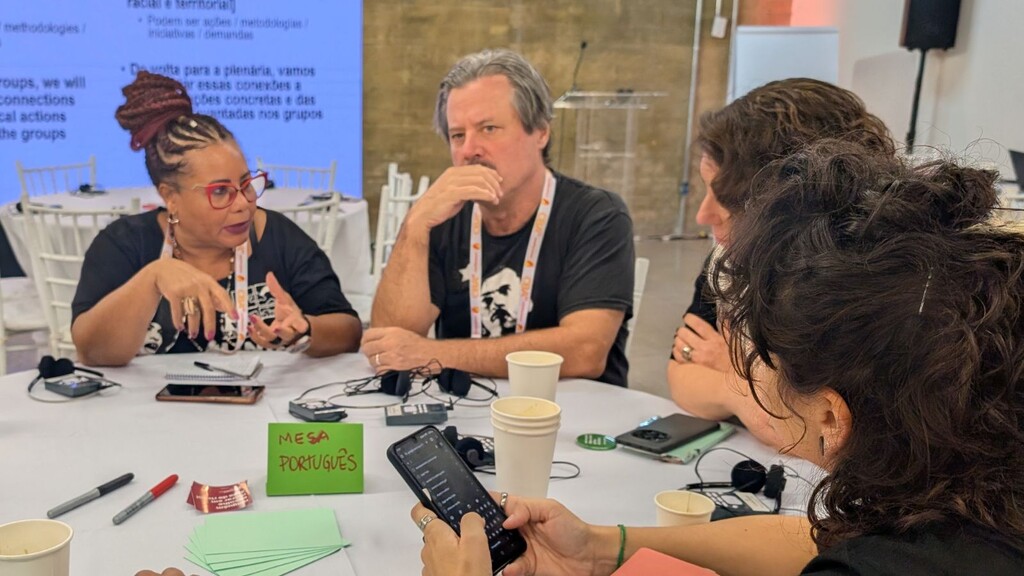Stand first: As the climate crisis deepens, it’s time to stop asking only “what did we achieve?” and start asking “what did we learn and who decided what mattered?”

As climate change continues to impact and challenge the resilience of vulnerable communities, one truth is becoming increasingly certain: real progress in adaptation cannot happen without centering the voices, knowledge and leadership of those most affected. This was a resounding message from the 19th International Conference on Community Based Adaptation (CBA19), held in May 2025 in Recife, Brazil.
Among its many takeaways, one key message that stood out for its transformative potential was: communities must be empowered to define what success looks like and shape the learning that comes from climate action. Not just because it’s the right thing to do, but because it works.
Moving away from top-down thinking
For too long, climate change has followed rigid, top-down models. These often prioritize donor requirements over local realities, emphasize technical metrics over social change, and value external accountability rather than internal learning and capability strengthening. As a result, communities are left out of the conversation, and adaptation efforts risk becoming detached from what truly matters on the ground.
CBA19 directly challenged this extractive approach. Participants, ranging from grassroot actors to global organisations, donors and policy makers, called for a fundamental shift – one that places human centered, community led learning at the core of climate action. Rather than imposing rigid frameworks, programmes must create space for communities to articulate their own definitions of success. This might mean recognizing soft adaptation infrastructure like promoting social cohesion or revived local knowledge systems. Outcomes are often invincible in conventional metrics but essential for building lasting resilience.
CRAKS: Making Learning Local
These lessons resonate deeply with our work under the CRAKS (Building Community Resilience through Strengthening Agricultural Adaptation Knowledge Systems) in Uganda project. The project, led by ACTADE, in partnership with IIED is reimagining how the adaptation knowledge ecosystem, comprising of knowledge producers, disseminators and users along the agricultural; value chain can be strengthened to better support the resilience of smallholder farmers.
Through inclusive deliberative dialogues, focus group discussions and safe spaces, CRAKS facilitates knowledge sharing and co-creation, while also supporting documentation of indigenous knowledge, to ensure adaptation efforts are inclusive and grounded in local realities.
For example a group of women famers in Tororo in eastern Uganda shared that indigenous seasonal forecasting indicators such as observing birds and wind direction patterns are integrated into local adaptation. These inform the seasonal weather changes and help them to make farming decisions.
Shift the power downwards
Redefining success is not just about tweaking indicators or programming. It’s about shifting power. Who decides what matters? Who gets to say what worked? True transformation begins when communities become active agents in generating and interpreting knowledge, not just passive subjects of projects and evaluations.
This shift also requires valuing diverse voices and perspectives. Women, youth, and persons with disabilities bring critical insights, often grounded in overlooked knowledge systems and lived experiences. CRAKS deliberately ensures these groups are not just included but are shaping the learning and knowledge co-creation from the start.
Looking ahead
Building on the reflections from CBA19 and emerging insights from its pilot phase, CRAKS is still in the process of gathering evidence, testing approaches, and learning what works. While the full impact remains to be seen, the project is laying a strong foundation for more inclusive, grounded adaptation in Uganda’s agriculture sector.
In the coming months, CRAKS will focus on:
- Documenting and elevating indigenous and local knowledge to inform adaptation approaches that are grounded in local and cultural realities
- Supporting local governments to play facilitative roles in learning processes, with an emphasis on inclusion, reflection and dialogue
- Improving the availability, accessibility, and use of gender-responsive climate adaptation knowledge, ensuring that smallholder farmers and marginalized groups can access and apply relevant information
- Addressing gender and social inclusion barriers to ensure locally led adaptation practices are inclusive, equitable and sustainable
Through these efforts, CRAKS is laying the groundwork for a more inclusive, responsive and locally relevant adaptation, one that values community leadership, diverse knowledge systems and long-term learning.
Conclusion
As the climate crisis accelerates, we can no longer afford to do business as usual. It’s time to dismantle technocratic barriers and rebuild approaches and systems of learning and accountability that are co-created with, by and for the people on the frontlines. Let’s start by asking the most important question, not “what did we achieve?” but “what did we value, and what did we learn?”, this means embracing success not as a checklist of outputs, but as a living process of reflection, empowerment and transformation.
About the Authors
Jonathan Angura is a Project Officer at the African Center for Trade and Development
Lilian Motaroki (lilian.motaroki@iied.org) is a Researcher in IIED’s Climate Change research group
